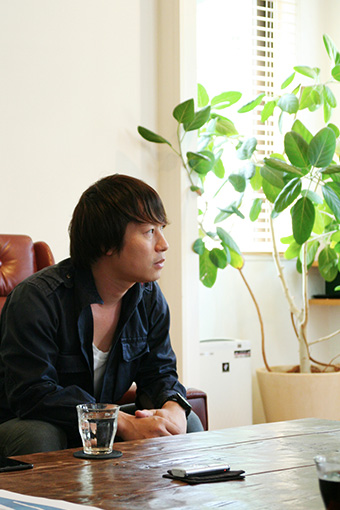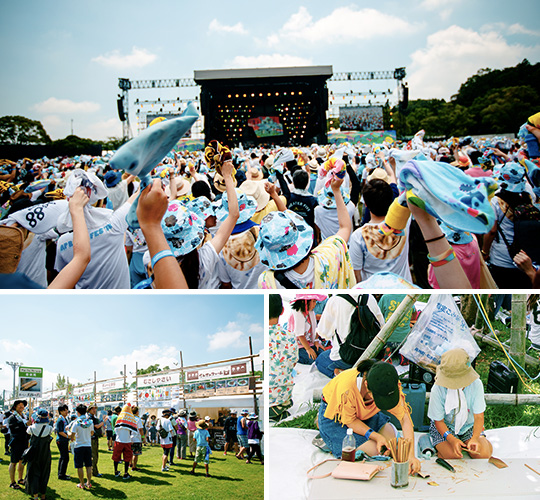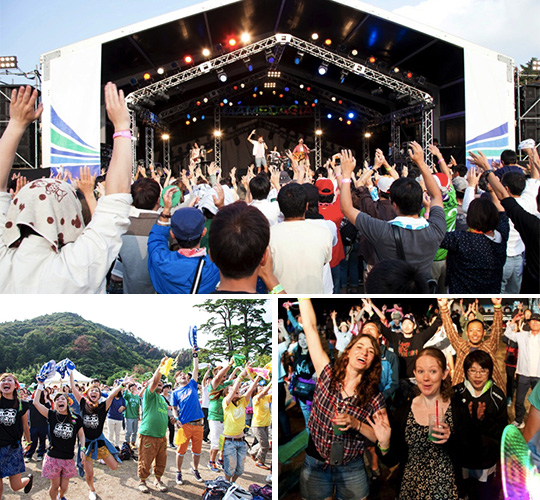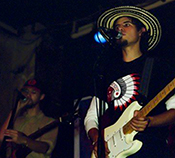Music Has the Power to Drive the World.
(Part 1)
Masashi Mori / Planner and producer of music festivals and live events
Music Festivals Hold Infinite Potential.
A music festival brings musicians together to create mesmerizing live performances. Masashi Mori wields his talent and expertise behind the scenes to produce music festivals. Drawing from his experience in offstage production at the Rock In Japan Festival, he has organized musical extravaganzas such as the “ap bank fes” and “Hibiya Music Festival.” He describes his personal principles from a backstage perspective that has shaped his work as a music festival producer.
Clear vision is essential: a festival must have a concept and a purpose.
I produce three or four festivals in a normal year, and up to six in a busy year. The work to produce a music festival extends from the concept-building phase, when I form an overall picture of the event, to the hands-on operations in the field. A music festival is a huge event that can only succeed when the countless practical details that go into its production, from the stage setup to the on-the-fly decisions at the venue, work holistically together. I see myself as a person who looks at the ‘big picture’ and ties little things together. The staff who work with me on an event are superb, but I can only delegate them so much authority. The details that breathe life into an event are worked out in the field, in the milieu, if you will. The small decisions are vital. If you try to make them from a distance, in an office, you will have no feel for the scene of the action. I came to understand the importance of on-site decisions doing temp work backstage as a student.
Another key to producing a music festival is a clear concept of the event. All of the stakeholders–the sponsors, the local authorities, the resident groups–make contributions vital to the festival’s success. Before they join the effort, they want to know the purpose of the festival and the details planned out. So much depends on the concept, from the musicians you choose to invite, to the foods you have prepared. I came to see the importance of the event concept while working for the ap bank fes.

The ap bank fes raised people’s awareness of environmental issues.
In 2005, the music producer Takeshi Kobayashi and musician Kazutoshi Sakurai organized the ap bank fes as a forum to consider environmental issues through fun live concerts. The format is unique: the pair forms a house band, the Bank Band, to perform exciting joint sessions with guest artists. An NPO called “ap bank” mobilizes the revenue from the event for good causes, such as loans for environmental projects and donations for disaster-hit communities. I have been involved in the planning and production of the festival since 2006. From the very beginning I took a great interest in the food prepared for the event. I made sure that the foods and their ingredients were organic and fair trade, and that all of the cutlery and plates were reusable.
We incorporated stage talks, panel displays, and workshops to send out messages of environmental awareness. We also introduced green energy. We sorted the waste into more than 10 categories, to highlight how things could be recycled and reused. The ap bank fes has been a pioneer as a Japanese music festival that raises consciousness on social issues. For the people who come, a festival is an opportunity to experience how environmental issues tie into their lives directly. The environmental focus of the ap bank fes has transformed my way of thinking. As far as I know, the festivals before the ap bank fes were driven chiefly by an entertainment-for-profit motive as showcases for various bands. The ap bank fes has shown me the infinite potential of music festivals as vehicles to express ideas and messages that awaken us to the social issues we must confront.

MAMEDAGIA FES was a platform to connect people.
In 2014 I produced another major festival, the MAMEDAGIA FES on the Island of Okinoshima. Our concept was to show the world the many great things this small island had to offer. The young of Okinoshima tended to leave for the big city. We wanted to make the island a place they would be proud to come back to. This concept guided our decisions on how the event should be organized, on the musicians we invited to perform, on the food to be served. Instead of going for simplistic assumption that seafood would be key to the success of a music festival held on an island, we asked a major donut chain to become an unlikely provider of music festival food. This particular brand of donuts had a history on the island. A long time ago, men who went to the mainland for work would buy this brand of donuts by the dozens for their children who were waiting for their return at home. For the island children, the donuts meant special treats. One day, however, the donut shop that was on the fathers’ itinerary went out of business, and the donuts were no more to be enjoyed on the island. When we set up a stand for this donut chain at the MAMEDAGIA FES, the festival-goers formed long queues to once more taste their fondly remembered donuts.
We invited diverse talents and artists for the event, from TV celebrities to rock bands, to offer something for everyone. We signed up the TV celebrity Jun Inoue, and prominent musicians such as GAKU-MC, OAU, My Little Lover, Shinsei Kamattechan, GONTITI, and Kimaguren. All in all, sixteen groups performed over the two-day program. The organizing members and local communities were delighted. Nowadays the music festival is becoming a favorite vehicle for revitalizing a local community. The organizers pool their efforts to bring people together and make it happen. People who have left their hometowns have a great reason to come back and visit. The festival connects people who otherwise would never meet. This is but one of many potential powers of a music festival.

- Masashi Mori / Planner and producer of music festivals and live events
- In his early career, The Forest CEO Masashi Mori took a position in rockin’on, a renowned event production company responsible for major music festivals such as the Rock In Japan Festival and Countdown Japan. He later started working for Takeshi Kobayashi as chief production manager for the ap bank fes at Oorong-Sha, an event production firm that represents prominent artists such as Mr. Children. Now at his own company, The Forest, Mori produces large-scale events such as Kishidan Banpaku and the Hibiya Music Festival, along with solo stages for artists such as Superfly.
Interview Date:



